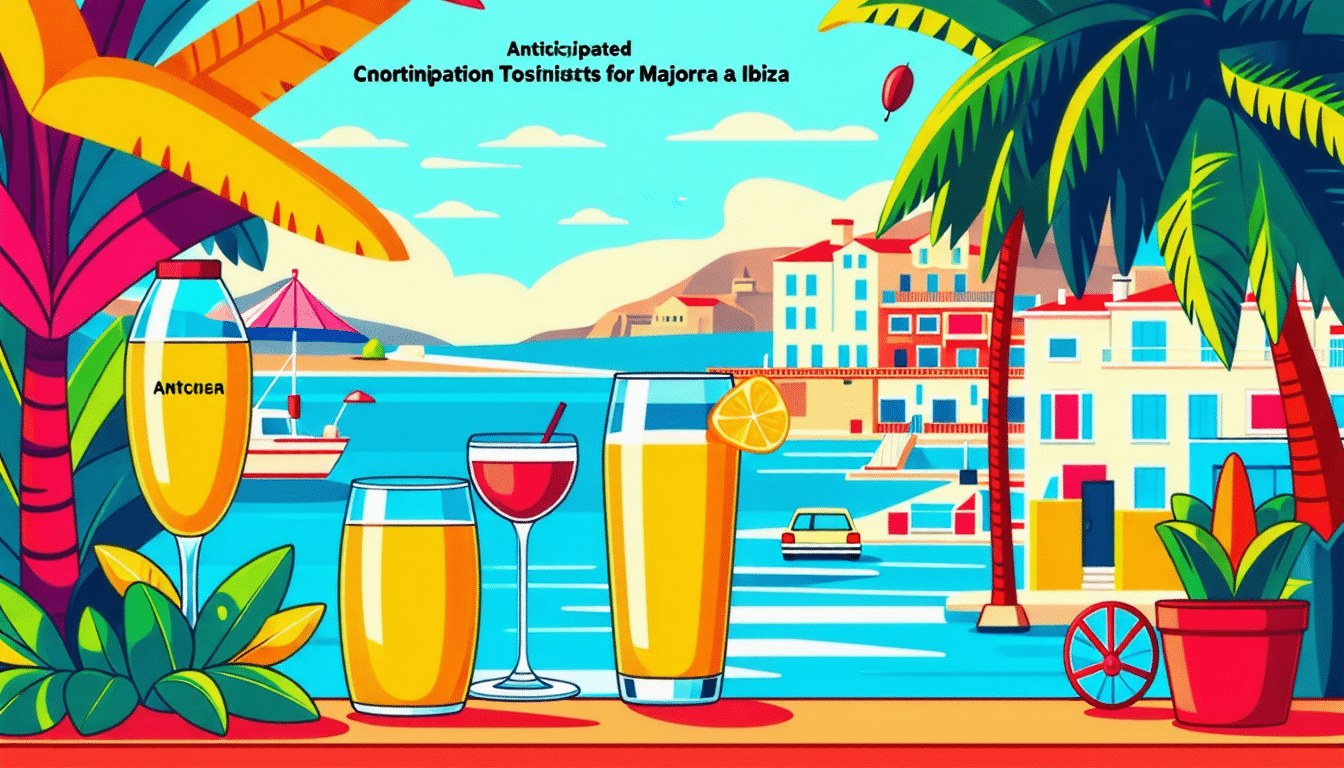Prepare yourselves, dear travelers in search of sun and parties, for a major change during your next getaways to Mallorca and Ibiza! The two jewels of the Mediterranean plan to introduce restrictions to reduce the alcohol consumption of tourists. Whether on the beach or in the evening, discover how these measures could transform your festive vacation into a new style of adventure. Equip yourself with a mocktail and let’s dive into the details of this intriguing initiative together!
Impact of excessive alcohol consumption among tourists
The Balearic Islands, and particularly Mallorca and Ibiza, are famous for their idyllic beaches and vibrant nightlife. However, this popularity has a less attractive side: excessive alcohol consumption among some tourists, which disrupts locals and degrades the experience for other visitors. In response to these challenges, the local government has decided to take firm measures to reduce nuisances and promote more responsible tourism.
New regulations for a peaceful atmosphere
Faced with repetitive incidents due to alcohol abuse, strict restrictions are now in place. Holidaymakers in areas most affected by party tourism will no longer be able to buy alcohol in stores from 9:30 p.m. to 8:00 a.m. In addition, parties on boats which often degenerate into maritime drinking parties are also in the crosshairs: these ships are now prohibited from organizing large parties with alcohol on board less than 1,852 kilometers from the coasts concerned.
Financial repercussions for violators
Failure to comply with these new rules could be costly. Fines for drinking alcohol in the streets, outside authorized spaces such as the terraces of bars and restaurants, will vary between 500 and 1,500 euros. This measure aims to discourage irresponsible behavior and maintain order in public places, ensuring an enjoyable experience for everyone.
Investment in a quieter future
In addition to strictly regulating alcohol consumption, the Balearic government is investing 16 million euros in projects intended to improve safety and raise awareness of the concept of responsible tourism. These initiatives reflect a desire to transform the image of the islands from simple party havens to welcoming destinations for all types of travelers.
Mallorca and Ibiza are determined to reinvent themselves, not only by prospering through their tourism offering but also by ensuring harmonious coexistence between tourists and residents. These measures could serve as a model for other destinations facing similar problems, betting on sustainability and mutual respect in the tourism industry.
It is clear that the Balearic Islands are on a promising trajectory to prove that pleasure and responsibility can coexist, provided that appropriate policies are put in place and ensured that they are correctly applied. These actions could well redefine the future of tourism in this emblematic region of Spain.









